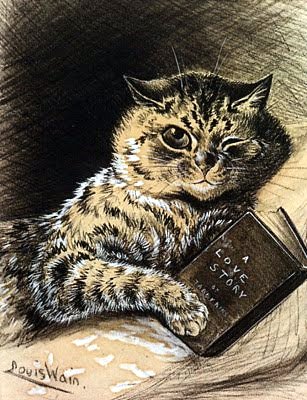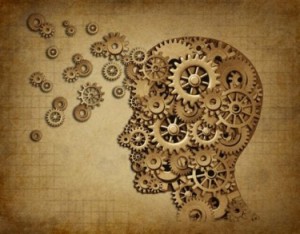Reading a text is no different than looking at one’s college career and wondering where one’s going to find college savings and discounts in a world that seems to be framed for adults. In fact, you control the framing of the world just as you control the framing of a text.
When one reads a text, one is reading with one’s own rules for construction, as well as the rules and guidelines for construction that the text provides. A definition of the text cannot be given without consideration of the reader. A text does not exist until it has been read, and every reading is a unique interaction between the text and the participating reader[1]. Wolfgang Iser suggests that the text offers “‘schematized aspects’ through which the subject matter of the work can be produced, while the actual production takes place through an act of concretization”.[2] The text can offer several possible constructions of meaning, but these constructions do not exist until there is a reader to construct them. Iser identifies the two poles of a text as the artistic and the aesthetic; the artistic pole is the text as written by the author, and the aesthetic pole is the realization of the text by the reader.[3] Due to this plurality, a text cannot be defined by either pole; instead, it is defined by the relationship between the two poles.

By Louis Wain
When you see and understand anything in the world, it can always be interpreted as a split between these two poles. In a conversation, there exists the other participant with their own structure of beliefs, and you, who interprets and understands what they are saying. A conversation cannot be defined by either of these alone; it only exists as a relationship between these two poles, and that relationship is what should be focused on, understood and used as a basis for further activity. This parallels the split that exists in the world between thought and action.
The idea of a split seems to be a difficult thing to comprehend at first, because the world seems to be made up to wholes and unities. And while it is true that the split is a manmade construction, the split is in fact necessary towards the understanding of the whole. A human can be called the combination of thought and action, a simultaneously looping of one to the other, creating a state of becoming. Both particulars, thought and action, are necessary towards understanding the general relationship that is created out of the two. Just like how the two poles of a text, the artistic and the aesthetic, are both necessary towards the understanding of the text. And the text is simultaneously general and particular; it exists as the general book and as the particular reading. This is because language and speech are simultaneously thought and action, existing in both worlds. It is both a truth and an appearance.
Most things in life can be divided into the realms of truth and appearance. This is not to say that these are the only two realms of the world, but it can help one’s understanding to acknowledge these two realms. To recognize that someone can act differently from how they are thinking, regardless of intention, is what opened mankind up to the idea that things may not always be as they seem. But to be fair, in this instance there is an error in the rhetoric. Things will never be as they seem because things will never be anything. They are perpetually in a state of seeming, of becoming, and to become what you seem is an endless cycle.
[1] Iser, Wolfgang. The Act of Reading. Baltimore: The Johns Hopkins University Press, 1978. 20. Print.
[2] The Act of Reading 21
[3] The Act of Reading, 21
———————————————————————————————————
Marina Manoukian, Sarah Lawrence College
Follow the Campus Clipper on Twitter and Like us on Facebook!
Interested in more deals for students? Sign up for our bi-weekly newsletter to get the latest in student discounts and promotions and follow our Tumblr and Pinterest. For savings on-the-go, download our printable coupon e-book!



